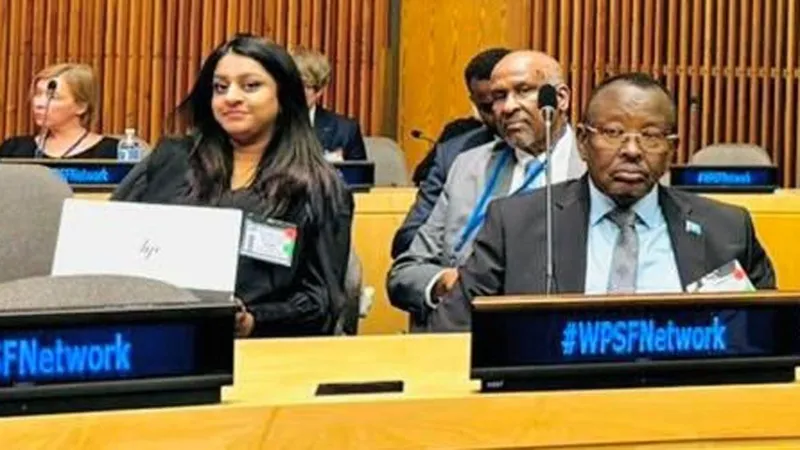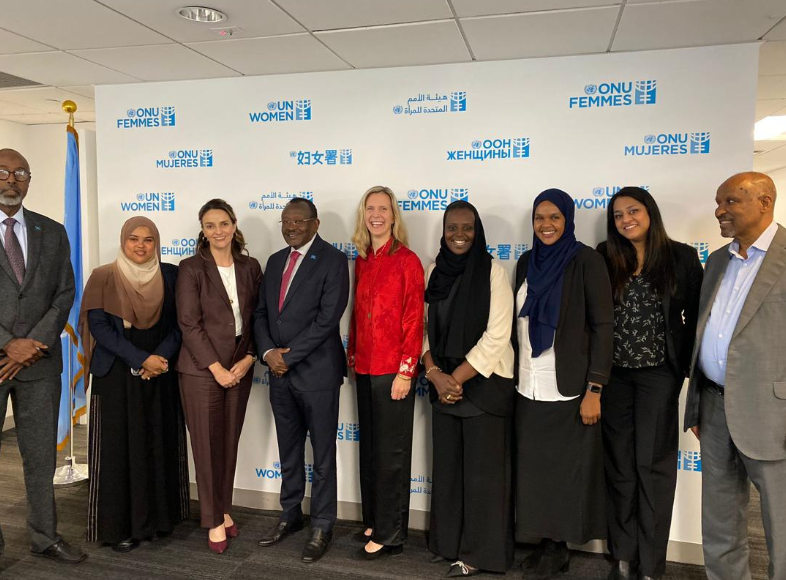Somalia’s government has come under fire on social media after Family Minister Gen Bashir Mohamed Jama shared photos on X (formerly Twitter) of himself and another male delegate representing the country at a UN meeting on women’s issues.

The group photo from the Women, Peace and Security Focal Points Network event, held earlier this week in New York, has sparked further ridicule from Somalis online, with many accusing the government of not taking women’s rights seriously.
“It is tone-deaf for the Somali government to have men on the frontline, representing women at the conference,” Fathiya Absie, a well-known Somali author and human rights activist, told the BBC.
A senior civil servant at Somalia’s Ministry of Family and Human Development, Mohamed Bashir, told the BBC that two women, Iman Elman and Sadia Mohammed Nur, were also part of the country’s four-member delegation but were not included in the photo. Out of 197 delegates from 57 countries, only 21 were men.

The online backlash has reignited criticism of the government’s decision in July to rename the Ministry of Women and Human Rights Development to the Ministry of Family and Human Rights Development, coinciding with the appointment of Gen Jama, a senior military officer, to lead the ministry.
“Removing the word ‘women’ from the ministry’s title is an erasure of the struggles and specific needs of women. It generalises their issues under the broader term ‘family,'” Ms Absie said.
Women’s rights in Somalia, a country that has endured a long civil war and a more recent Islamist insurgency, have long been a topic of concern. Despite women playing a vital role in peacebuilding and often stepping into leadership roles, there are few women in positions of political influence.
Some defenders of the government said they saw nothing wrong with having an experienced man leading the family ministry. However, the voices calling for stronger female representation are growing louder, and Mr Bashir said the ministry would strive to give women a more significant role in the future.
The incident has highlighted the ongoing struggle for gender equality in Somalia and the need for greater representation of women in decision-making processes, especially those directly impacting their lives and rights.



